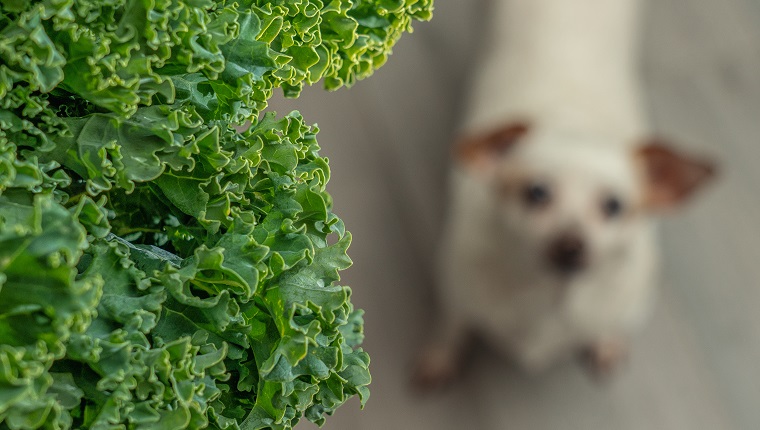Can dogs eat kale? If you’ve embraced kale as a regular ingredient in your own meal planning sessions, you might have found yourself wondering whether your canine pal can also eat kale. If humans can eat kale, can dogs safely eat it too?
There is no short yes or no answer as to whether dogs can eat kale safely. In very small amounts, kale is unlikely to be toxic or harmful to most dogs, and it can also confer some positive nutritional benefits. But in certain cases and quantities, it could also upset your dog’s stomach and bring on bladder and kidney stones.
As always, you must ask your regular vet before sharing any human food with your cherished pooch, including kale. Here’s what you need to know about kale and dogs.
When Is Kale Okay For Dogs To Eat?
A small amount of kale should not be harmful to most dogs. It contains a good amount of the vitamins A, C and K, along with helpful antioxidants. It also contains iron, which can be beneficial for the health of your canine’s bones.
If you consult with your veterinarian and decide to add kale to your dog’s diet, make sure to only serve a very small amount to your dog. As a general rule, stick to the ten percent method: If the food makes up less than ten percent of the dog’s daily food, it should not cause too many negative effects.
Also, consider the option of using other green vegetables, including green beans and peas, as a way to add more vitamins to your dog’s meals, rather than just kale.
When Is Kale Bad For Dogs?

In small quantities, kale should not prove toxic to your dog. But kale contains calcium oxalate and isothiocyanates, both of which can be harmful to your dog.
In the case of calcium oxalate, too much of it can cause dogs to suffer from kidney stones and bladder stones.
When it comes to isothiocyanates, they can bring on gastrointestinal issues for your dog.
In both cases, it’s important to always keep the above-mentioned ten percent rule in mind and make sure that, if you add kale to your dog’s diet, you only do so in very small amounts.
If you suspect that your dog might have managed to sneak in too much kale, keep a look out for symptoms including diarrhea, vomiting and issues when urinating, as all of these could point to the emergence of bladder stones.
Has your dog ever snacked on some of your kale? What healthy veggies does your dog like to eat? Tell us all about it in the comments section below!









